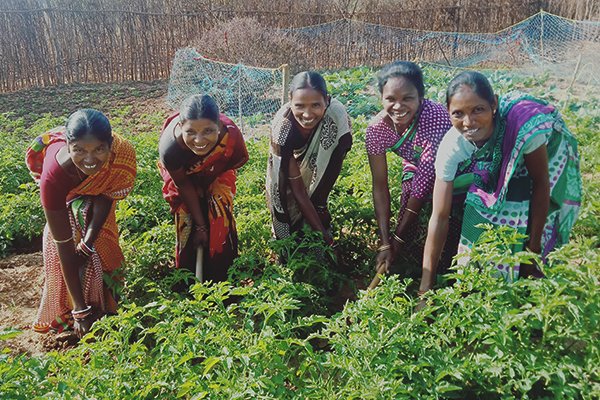Centre for Integrated Rural & Tribal Development (CIRTD) has been working towards empowering the most vulnerable communities in in Sundargarh district of Odisha. The aim is to enable communities access their rights over land, forest and other commons, make livelihoods secure and ensure access to public welfare schemes. With Scheduled Tribes making up 51 per cent of its total population, Sundargarh falls under the Fifth Schedule of the Constitution, that deals with the administration of areas where tribal communities are in a majority. People depend on agriculture and allied activities which they practice on forest land.
Since 2012, CIRTD and ActionAid Association have worked together to ensure food and livelihood security of tribal communities in Balisankara block of Sundargarh district. We work with marginal tribal communities, other forest-dwellers and small-holder farmers. Amongst them, we strive to draw out women into leadership roles. This engagement has facilitated the securing of individual as well as community forest rights as per the Forest Rights Act. As on date, the Sub-Divisional Level Committee has passed 84 community claims and 2,891 individual claims have been recognized. Besides, 126 families have received homestead land. As per the Panchayats (Extension to the Scheduled Areas) Act (PESA Act), Gram Sabhas (Village Councils) of 18 villages have demarcated village boundaries, marking out commons including forest, water bodies and revenue land. These Gram Sabhas have written to the authorities informing them about the same and the communities are now exercising their right to manage, use and conserve the commons of their villages.
We have been able to train more than 1,000 farmers, a majority of them women, on mixed cropping and organic farming. They now practice ecological farming, using traditional seeds, organic pesticides and manure. Athkosia Adivasi Manch, the community-based organization promoted by CIRTD, has about 3,000 members and is taking up a host of issues, including self-governance as per the PESA Act, the recognition of individual forest rights, facilitating people’s access to government schemes, handling with confidence interface with government officials, conducting village-level social audits of all line departments, building alliances with national and state-level adivasi (tribal) platforms and organizations, and working for the revival of lost tribal culture and traditions. ActionAid Association’s work with CIRTD has helped the tribal community take part in governance processes to build a better future for all.

